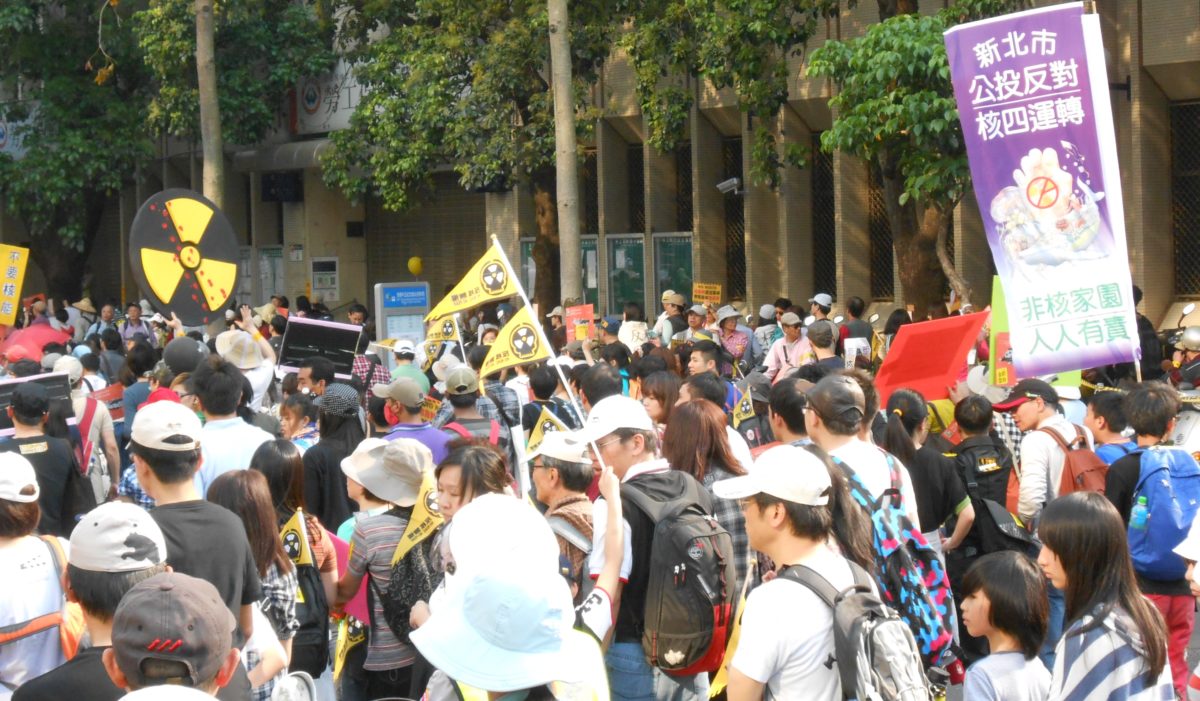Taiwan is currently aiming to install around 20 GW of solar PV and 5 GW of wind capacity by 2025. In 2017, legislators added a clause to the island’s electricity act to shut down all nuclear plants by then, but pro-nuclear advocates gathered enough signatures in October to force a referendum on removing it. They argued that nuclear energy is a low-emission, low-cost and stable power source.
Morgan Kuo, executive advisor at WiSolPro Consulting in Taiwan, told pv magazine that members of the island’s opposition party Kuomintang (KMT) backed the referendum. Because it passed, he thinks that over the next six years the legislative and executive branches will spend a lot of time either decreasing or increasing the share of electricity produced from nuclear power.
Even before the referendum, Kuo was already skeptical that Taiwan could meet its renewable energy targets. But now, he is certain it will not. “The RE target of 20 GW solar power & 5 GW wind power will definitely become mission impossible,” he said.
Not all think the effects of ending the 2025 nuclear-power phase-out clause will be dramatic, however.
Ruping Kao, chairman of the Taiwan Renewable Energy Alliance, told pv magazine there will be increased pressure for building nuclear power plants from KMT, which made strides in local elections on Saturday.
But building nuclear power plants requires a complicated environmental impact assessment. She still thinks there is not enough of a public consensus, and voters perhaps did not understand the possible results of their decision. The referendum result would likely not have a substantial effect on the renewable energy policy push, she said.
According to the Ministry of Economic Affairs Bureau of Energy, nuclear power accounted for 8.3% of the island’s electricity production in 2017. There are currently three operational nuclear plants in Taiwan. Construction on a fourth plant was halted in 2014 after delays and protests.
In similar news last week, France unveiled a new energy strategy which lays out three possible scenarios for the government's further commitment to nuclear power, thus u-turning on its previous decision to decrease the share of nuclear in the country's energy mix from around 71% currently to 50% by 2025.
By Andrew Silver
This content is protected by copyright and may not be reused. If you want to cooperate with us and would like to reuse some of our content, please contact: editors@pv-magazine.com.



1 comment
By submitting this form you agree to pv magazine using your data for the purposes of publishing your comment.
Your personal data will only be disclosed or otherwise transmitted to third parties for the purposes of spam filtering or if this is necessary for technical maintenance of the website. Any other transfer to third parties will not take place unless this is justified on the basis of applicable data protection regulations or if pv magazine is legally obliged to do so.
You may revoke this consent at any time with effect for the future, in which case your personal data will be deleted immediately. Otherwise, your data will be deleted if pv magazine has processed your request or the purpose of data storage is fulfilled.
Further information on data privacy can be found in our Data Protection Policy.